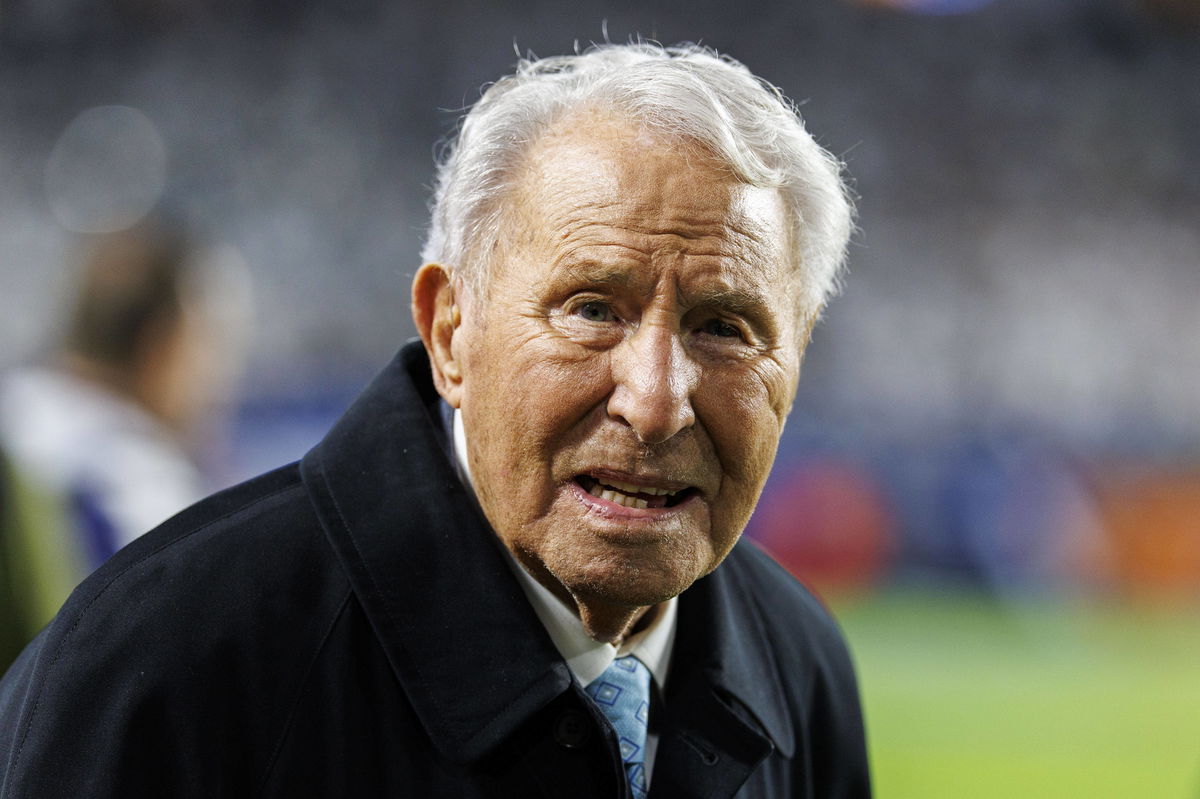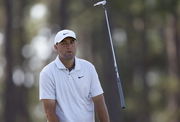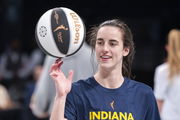
Imago
January 09, 2025: ESPN College GameDay analyst Lee Corso during NCAA, College League, USA football game action between the Notre Dame Fighting Irish and the Penn State Nittany Lions at Hard Rock Stadium in Miami Gardens, Florida. /CSM. – ZUMAc04_ 20250109_zma_c04_407 Copyright: xJohnxMersitsx

Imago
January 09, 2025: ESPN College GameDay analyst Lee Corso during NCAA, College League, USA football game action between the Notre Dame Fighting Irish and the Penn State Nittany Lions at Hard Rock Stadium in Miami Gardens, Florida. /CSM. – ZUMAc04_ 20250109_zma_c04_407 Copyright: xJohnxMersitsx
Lee Corso’s love of football is unmatched. It showed both in his coaching and when he started his broadcasting career. But he had no idea that one regular morning, his life would turn upside down, and all those moments that Corso spent loving football and spreading that love would start to fade into oblivion. At 74, on May 16, 2009, the iconic College GameDay host was rushed to Florida Hospital Altamonte after he was partially paralyzed. It was a period, according to his daughter, not highlighted by his stroke but by the sheer resilience he showed.
Watch What’s Trending Now!
“Every morning he would go to the front house at the end of the driveway to get the newspaper. Part of his face had already started to droop, and he said, I think I’m having a stroke,” said Corso’s daughter, Diane Corso, as the family sat at a table with that same newspaper Corso still has kept, remembering the testing moment. Even Kirk Herbstreit couldn’t believe the news.
“It was hard to really understand, forget TV. It was hard to understand, like, was he going to be okay?” said Herbstreit. While these concerns were real, the desire to be a part of college football burned bright in Corso’s chest, and that helped him cope with the stroke much sooner than one would have expected. “Around in the first few days, it was very difficult for him to even sit up and do things on his own,” said Diane Corso. And remembered how her father wasn’t even able to speak in “simple sentences.”
ADVERTISEMENT
I do remember it took a while for him to just have the ability to know speak in simple sentences,” said Diane. Moreover, Chris Fallica remembered how Corso took that ‘recovery’ challenge like winning a game as a coach. “He kind of took that challenge as if I were an old coach, where this is my opponent. I’m going to win the game. I need to be on that college game day set where the season starts,” said Fallica.
“He fought like hell and it worked. And he won.”
In 2009, Lee Corso suffered a stroke, but he wasn’t going to let that stop him from doing what he loved. pic.twitter.com/gIrch2kb8J
— College GameDay (@CollegeGameDay) August 23, 2025
After that stroke, Corso underwent an extensive rehabilitation process that involved occupational therapy, physical therapy, and a special focus on his speech. Even Corso described how his tongue felt, weighing “80 lbs,” and people struggled with comprehension. But within a few months, Corso made his appearance back in college football on September 5th, 2009.
ADVERTISEMENT
College football was the only thing that kept Corso going
Corso was never the same after the stroke. Despite his intensive speech therapy, he had to manage overcoming the issues before every game. And to do that, Corso used to rehearse his segments and started pre-scripting instead of following his iconic spontaneity that people loved. Nevertheless, with the help of his fellow announcers like Kirk Herbstreit and Chris Fowler, Corso persisted. And according to his daughter, college football is the only thing that kept Corso going during his difficult phase.
ADVERTISEMENT
Corso was back in that press box against Alabama vs Virginia Tech with his fellow announcer Kirk Herbstreit, like he was always there. It was a moment nobody had expected to come this soon. “I do believe that the show saved him in a way because that’s his life, and his life is speaking. And if they told him that he could learn to speak again, and that he was going to have a goal of doing that, so he could get back to what he loved,” said Diane.
Corso’s 38-year tenure at College GameDay from 1987 to 2025 is a testament to his dedication to the game. His iconic line, “Not so fast, my friend,” and those entertaining headgear picks are still cultural icons. But at 90 years of age, Corso has called it a day and will come for one last headgear pick at Columbus, Ohio, in the Texas vs. Ohio State matchup in week 1.
Top Stories
Scottie Scheffler Injures Fan in the Head at American Express as Painful Moment Is Caught on Camera

Greg Biffle’s House Burglary Suspect Identified After Officials Release Security Camera Footage – Report

‘Hideous’: Jason Day Sparks Outrage With Outfit Choice at PGA Tour Season Debut

Prayers Pour in for PGA Tour Champions Star as Cancer Diagnosis Comes to Light

“Be Respectful”: Coco Gauff Shuts Down Crowd Comment as She Backs American Rival at Australian Open

Indiana Fever Makes WNBA Announcement on Caitlin Clark’s 24th Birthday

ADVERTISEMENT
ADVERTISEMENT
ADVERTISEMENT



